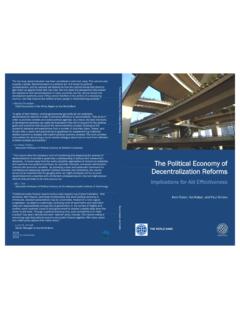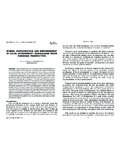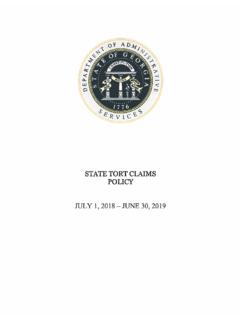Transcription of Local Government Discretion and Accountability: A ...
1 Local GOVERNANCE & accountability SERIES. Paper No. 113 / July 2008. Local Government Discretion and accountability : A Diagnostic Framework for Local Governance Serdar Yilmaz, Yakup Beris, and Rodrigo Serrano-Berthet SOCIAL DEVELOPMENT PAPERS. Local GOVERNANCE & accountability SERIES. Paper No. 113 / July 2008. Local Government Discretion and accountability : A Diagnostic Framework for Local Governance Serdar Yilmaz, Yakup Beris, and Rodrigo Serrano-Berthet This Working Papers Series disseminates the findings of work in progress to encourage discussion and exchange of ideas social development issues. The papers carry the names of the authors and should be cited accordingly. The series is edited by the Community Driven Development team in the Social Development Department of the Sustainable Development Network of the World Bank.
2 This paper has not undergone the review accorded to official World Bank publications. The findings, interpretations and conclusions herein are those of the author(s) and do not necessarily reflect the views of the International Bank for Reconstruction and Development/ World Bank and its affiliated organizations, or its Executive Directors, or the governments they represent. To request copies of the paper or for more information on the series, please contact the Social Development Department Social Development The World Bank 1818 H Street, NW. Washington, DC 20433. Fax: 202-522-3247. E-mail: Printed on Recycled Paper Table of Contents 1. The Local Governance Challenge: Linking Discretion and A Diagnostic Framework ..2. Reconciling accountability and Discretion : Establishing Trajectories ..4. 2. The Local Political Setting and Factors Defining the Local Political Institutional Separation of Powers at the Local Existence and Quality of Local Electoral Systems.
3 8. Nature of Party System and Making Local Politics Downwardly Public accountability Approaches ..11. Social accountability Approaches ..14. 3. Local Administrative Discretion and accountability ..16. Factors Affecting Local Administrative Discretion ..16. Ability to Regulate ..16. Discretion to Procure and Administer Services ..16. Discretion over Civil Service and Employment Making Local Administration Downwardly Public accountability Approaches ..18. Social accountability Approaches ..19. 4. Fiscal Discretion and accountability ..21. Determinants of Local Fiscal Discretion ..21. Expenditure Assignment: Defining the Role of Local Governments in Service Delivery ..21. Revenue Assignment: Financing Local Service Delivery ..21. Financing the Fiscal Gap: Intergovernmental Transfer System Financing Infrastructure: Local Government Borrowing.
4 22. Making Local Finances Downwardly Accountable ..23. Public accountability Approaches ..23. Social accountability Approaches ..24. 5. Applying the Diagnostic Framework ..26. Annex 1. Defining Discretion and accountability ..27. References ..28. Figures & Tables Figure : Framework for Local Government Discretion and Figure : Local governance turnarounds: Trajectories ..5. Table 1: Local governments and internal controls in selected 1. The Local Governance Challenge: Linking Discretion and accountability Improving Government accountability improves service delivery, particularly for the poor, a point the World Development Report 2004: Making Services Work for Poor People makes in convincing fashion (World Bank 2004). Conversely, increasing the resources allocated for public services without fixing the accountability incentive structure will most likely not translate into greater development benefits for the poor.
5 Decentralization (devolution)1 offers significant opportunities to improve Government accountability . It creates the possibility of exerting stronger pressures on Government performance both from below (the demand side) and from above (the supply side). Decentralization reshapes power relations among the Local residents, Local governments, producers of Local Government services, and higher levels of Government (including central Government ). It sets new rules of the political game, helping new Local leaders to emerge in the political competition. It thus redefines the interactions between Local leaders and their constituencies. Similarly, as a result of new regulatory and financial powers over procurement and service delivery, the decisions and actions of Local governments have a greater impact on Local economies.
6 Decentralization thus leads to new interactions and contractual relationships between Local governments, between small and big private firms, and between providers and producers of services, and communities and nongovernmental organizations. Despite decentralization's promise for more accountable Government , results have been mixed at best. The literature on decentralization contains many examples where decentralization has not led to greater accountability . Part of the reason (and the starting point of this paper) is that decentralization reforms have often been introduced without thinking through their accountability implications. Even when accountability is taken into account, the efforts tend to emphasize either the supply or the demand side of the accountability equation, but not both. Building appropriate Local governance structures requires bridging the supply and demand side so that Local governments can be downwardly accountable to citizens.
7 A precondition for downward accountability is to simultaneously empower Local governments and That requires setting priorities and sequencing decentralization reforms to strengthen accountability on both the supply and demand Drawing on the separate sets of literature on the three topics of fiscal, administrative, and political decentralization,4 this paper presents an analytical framework for studying the accountability implications of decentralization reform. It identifies the accountability implications of decentralization reforms and 1. We use the term decentralization to refer to one of its forms, devolution central Government 's transfer of administrative and financial decision-making authority to Local governments that have clear and legally recognized jurisdictions within which they provide public services to constituents they are accountable to.
8 Although the other two forms of decentralization . deconcentration and delegation also have accountability implications, our framework focuses only on devolution. 2. Recognizing the need to promote transparent, participatory, and downwardly accountable Local governance structures, the Social Development Department prepared Economic and Sector Work (ESW) on supply and demand issues under a conceptual Local governance framework. See Report No. 40153. This paper summarizes and builds on this ESW. 3. The theoretical literature on decentralization programs provides a normative discussion on broad steps in sequencing decentralization reforms. But it is silent about the link between decentralization and broader accountability reforms. Very few papers analyze this issue. See, for example, Spahn (2005) and Bahl and Martinez-Vazquez (2006).
9 4. The political decentralization literature and the fiscal decentralization literature follow separate pathways. The allocative efficiency argument is the economists' raison d' tre for fiscal decentralization. In his work on the theory of public finance, Musgrave (1959) argues that policies of subnational branches of governments should be permitted to differ in order to reflect preferences of residents. Carrying Musgrave's arguments further, Oates (1972) formulated the decentralization theorem as each public service should be provided by the jurisdiction having control over a minimum geographic area that would internalize benefits and costs of such provision. The political decentralization literature focuses on deepening democracy and ensuring the existence of a public sphere for citizens to give feedback and to control Government action (Agrawal and Ribot 1999; Fung and Wright 2001; Fung 2004; Ribot 2004).
10 1. brings the supply and demand sides together. Such a framework runs the risk of generalizing issues that are mostly specific to the Local context, but the goal is not to build a one-size-fits-all prescription. It is essential to conduct systematic analyses of country-specific Local power structures, interests, and socioeconomic conditions. Accordingly, the framework proposed here is a diagnostic tool for Local policy-makers to use when deciding on policy actions. A DIAGNOSTIC FRAMEWORK. This paper presents a conceptual framework to better analyze the factors that improve Local governance (figure ). Central to the framework (for a visual presentation of the analytical framework) are the following arguments: Decentralization reforms grant Local governments new powers and responsibilities in three dimensions: political, administrative, and fiscal.
















